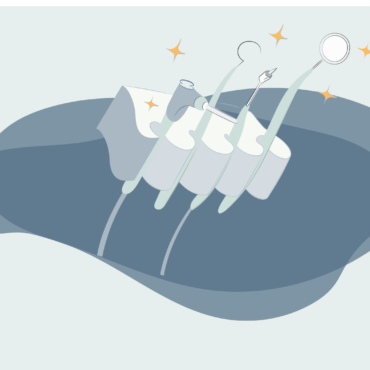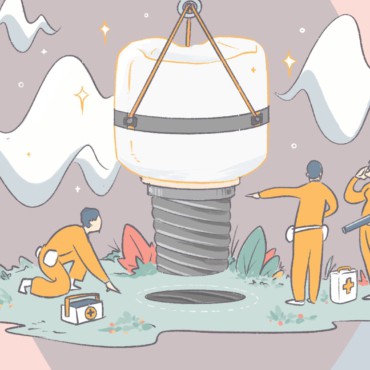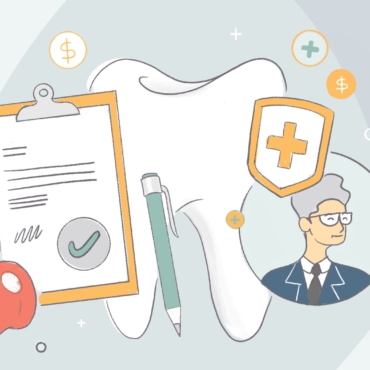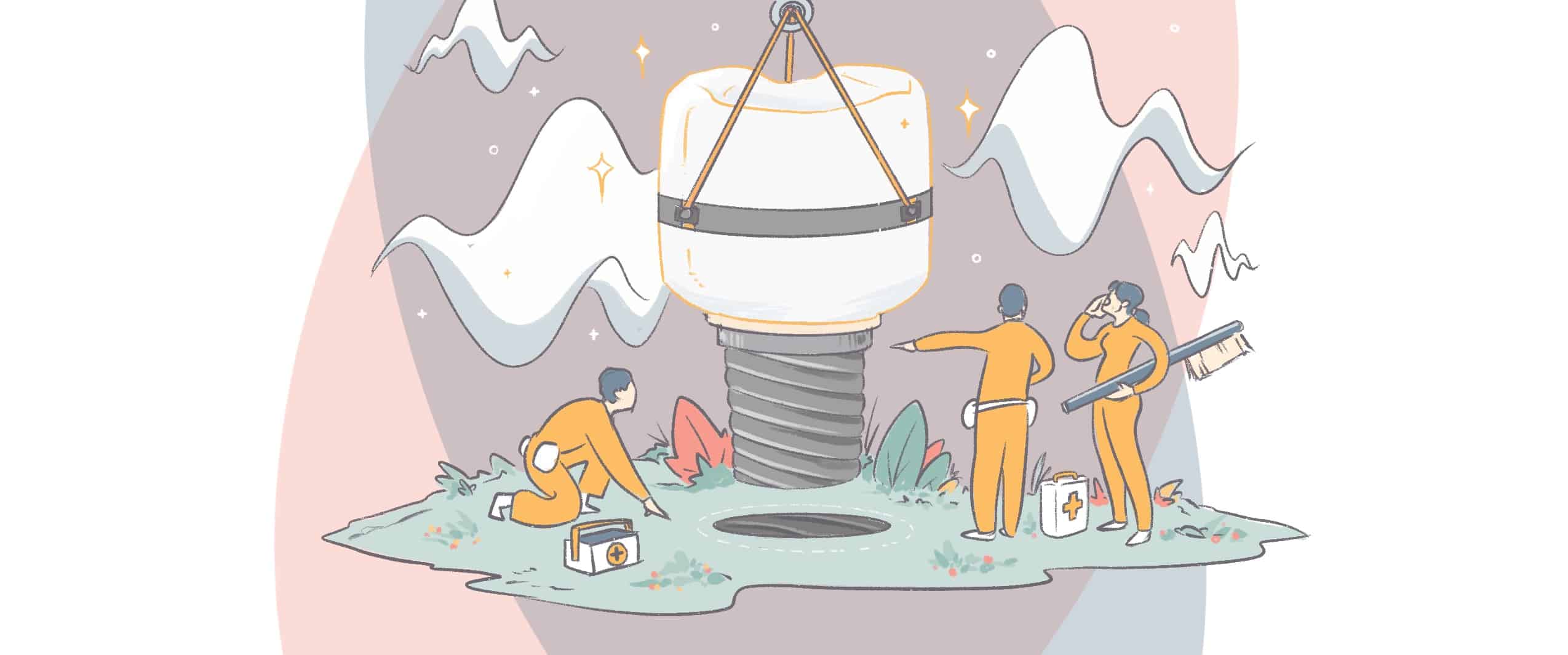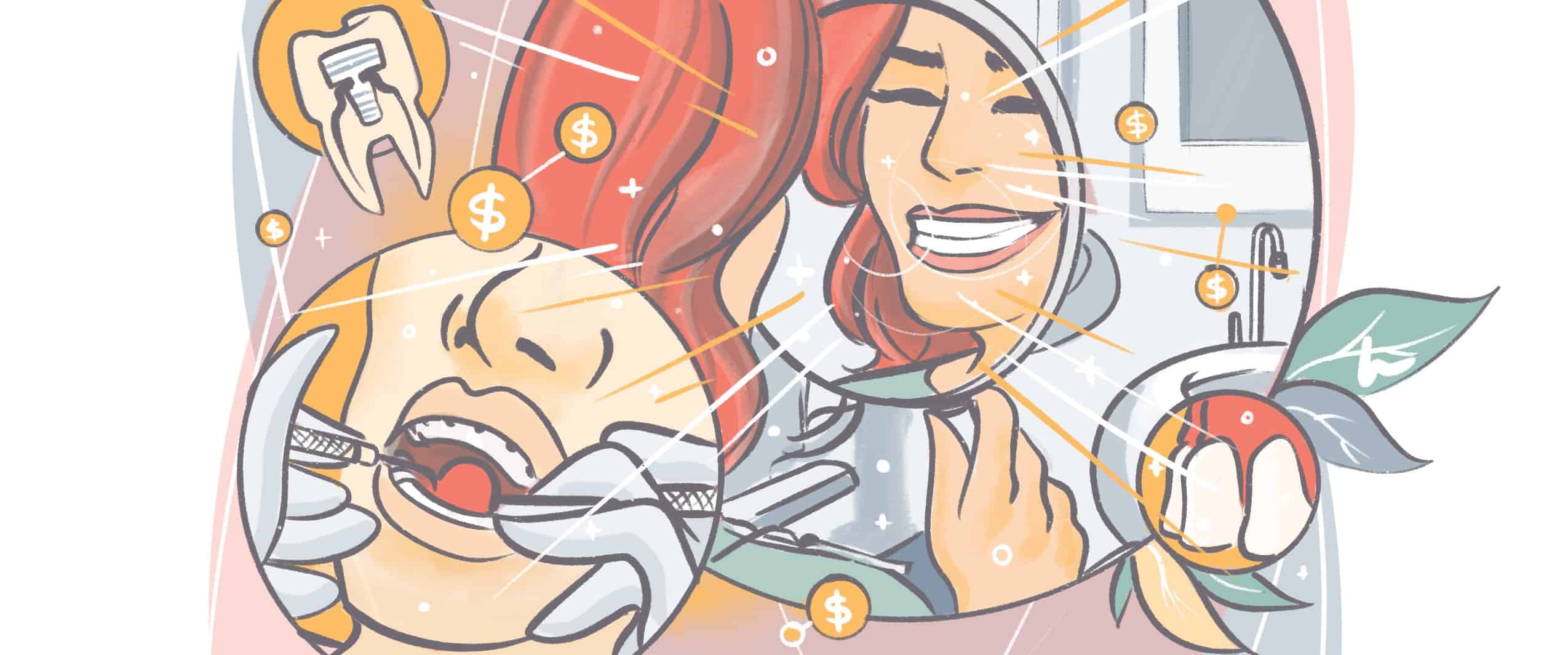To begin, there are any number of reasons why regular dentist visits will save you money in the long run – and we’ll get into those. But before we do, remember first and foremost that it’s not just about money.
Dental troubles can affect your whole body. In fact, the connection between heart disease and periodontal disease is not yet well understood, but researchers know there is one.
While periodontal disease may or may not be the cause, people with this dental disease are at a higher risk of heart disease. Considering that heart disease is the number one killer in the US, it’s something to keep on your radar.
And if you think you don’t have to worry about periodontal disease because you brush your teeth every day, think again. Regular dental hygiene at home definitely helps, but anyone can fall prey to periodontal disease. In fact, nearly half of all adults over 30 have some form of periodontal disease.
Regular dental exams will help your dentist catch tooth decay, cavities, and even oral cancer early. All of these troubles are far easier to treat (and less expensive) when caught early. Let’s discuss.
Why regular visits save you more money in the long run
Now that you have a (very general) understanding of the health benefits, let’s talk about greenbacks. You have to spend money to go to the dentist for preventive care. The cost of those visits adds up over time so does it really end up being cheaper than restorative dental care or a dental emergency?
Of course, if you never need a restoration or are faced with an emergency, not going to the dentist will be cheaper. But how likely is that? Unfortunately, if you avoid going to the dentist regularly, your chances of not needing some kind of major dental work are pretty small.
Let’s look at a few ways that letting a longer time lapse between visits pushes up your overall bill.
1) Cleanings and scaling are charged based on time: more tartar build up = longer cleaning
A big part of your dentist appointment is the professional cleaning. As you eat food, a sticky substance called plaque forms on your teeth. When you brush your teeth (as long as you do so properly) most of this is cleaned away. However, if there are any bits of plaque stuck between your teeth, eventually this will harden into tartar, which is very difficult to remove with a toothbrush.
Both of these substances allow bacteria to live and breed close to your teeth.
Your dentist or dental hygienist will thoroughly clean all plaque and tartar from your teeth — including in those hard-to-reach areas. The amount of time this takes is generally based on how dirty your teeth are. The more plaque and tartar buildup, the longer they take to clean. A longer dental appointment, of course, results in a higher bill.
2) Your insurance probably has minimums that must be met throughout the year
You should also consider how your dental insurance plan works. Many people are offered dental insurance through their workplace. If you are one of those lucky ones, definitely take advantage of it.
Dental insurance works a little differently than regular health insurance. Instead of being on hand to cover the catastrophic costs of an accident or injury, its main purpose is to cover regular preventative care. To encourage visits, your plan may require you to meet certain minimum charges throughout the year. In other words, it benefits you financially to keep up on your dental visits.
3) Catching decay early is important
One reason some people shy away from the dentist is the fear of experiencing pain or discomfort. However, dentists do everything they can to make their patients comfortable and limit the pain they experience. In fact, with modern dental tools like local anesthesia and sedation, most patients feel very little during a procedure.
That being said, bigger cavities and larger problems will still be more costly and more painful. As an example, let’s look at the cost of a filling versus a root canal.
Due for a checkup?
Find a top rated dentist near you that takes your insurance.
Fillings are a routine dental procedure. They can usually be done on the spot, require only a quick jab of local anesthetic, and are inexpensive. Your dentist will place a filling (after cleaning out and disinfecting the affected tooth) when you have minor tooth decay that has hollowed out a hole in one of your teeth.
On average, a filling costs between $150 – $350, based on the severity.
However, if your dentist never gets a chance to fill that cavity, the tooth decay will continue until the infection reaches the soft pulp inside your tooth. At this point, you’ll probably experience pain or a toothache (if you hadn’t already) and a root canal will be necessary.
How much will that cost you? You’re looking at anywhere from $600 – $1,400 depending on your market and the type of tooth (molars have more roots and thus are more expensive).
4) Regular cleanings reduce tartar and plaque build-up that contribute to deeper gum disease
Keep in mind that building up more plaque and tartar in a longer stretch between visits isn’t the only problem to think about. Even if you only have a little bit, the longer that plaque and tartar are there, the more time the bacteria has to cause damage and the deeper it can go.
As more builds up, the problem only becomes deeper and more entrenched. This is when you start getting into major dental problems. Some of your teeth might even require extraction and dental restorations to restore your smile.
You don’t have nerves on the outside of your teeth. You generally only have toothaches or experience pain once the issue begins to affect the soft pulp in the center of the tooth where there are nerves. In other words, if you wait until you feel it, it may already be too late to save the tooth.
5) Preventative healthcare is easier and cheaper to complete
Regular dental visits (particularly with insurance) aren’t very expensive. If all you need is a quick cleaning, a visual inspection, and maybe a set of dental x-rays, you’ll be out of the office in less than an hour for the price of a copay.
However, if you need a root canal or restoration, you’re looking at multiple visits and much more involved care. That also translates to rising dollar signs. In fact, a study by health insurer Cigna found that dental costs for people who didn’t receive preventive care were 43% higher.
How often should I visit the dentist?
For most people, one visit every six months is an ideal timeframe. Some people may need to see the dentist more often because of special considerations about their dental health. Once you find a dentist, be sure to ask about their recommendation for how often you should visit.
How much does a dentist checkup cost?
You may have heard people complaining about the high cost of dental care. That might even be why you’ve avoided going to the dentist for so long. However, it’s unlikely they are complaining about the cost of a basic dental visit.
The cost of a dental checkup ranges anywhere from $20 (with insurance) to $500, depending on your local market. However, anything more than a simple filling or cleaning can easily run up to several thousand dollars. For example, an extraction can cost between $220 and $4,000 and a crown runs between $500 and $3,000. Dental implants to replace missing teeth run between $3,500 and $4,000 per tooth.
With just these examples, you can see how these more major dental costs dwarf those of preventative care.
Find a dentist near you
We hope all this has motivated you to find a dentist near you. Not only are regular dentists visits good for your health but also for your wallet.
We reward you for going to your dental checkup!
Wondering how to find the right dentist for you? Take our quiz to be matched with the perfect dental professional near you and level up your oral wellness today!


